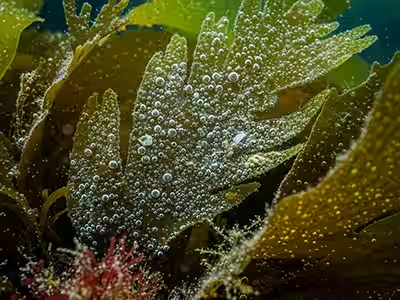The Global Movement to Ban Marine Animal Shows: A Look at the Current Status
Will Marine Animal Shows Be Banned Worldwide? The Latest Updates
Reading time: 1 minute, Discovery Chepe Id-771-ECO
Published on 06-25-2025

Photo: Kenny Eliason
The use of marine animals in entertainment shows has sparked growing global concern. In recent years, countries, animal welfare groups, scientists, and even former trainers have raised their voices against this controversial practice. The central question remains: Will marine animal shows be permanently suspended?
A growing global debate
Marine animal shows, especially those involving dolphins and orcas, were once celebrated attractions in aquariums and theme parks. But over time, videos, documentaries like Blackfish, and firsthand testimonies have shifted public opinion.
Concerns about animal welfare: Scientific evidence now confirms that captivity can cause stress, behavioral disorders, and health problems in marine mammals. Species like orcas, which travel hundreds of kilometers in the wild, cannot thrive in small tanks.
The economic factor: Despite ethical concerns, marine animal shows continue to attract tourism. Some facilities argue that they rely on these performances to fund conservation or education programs.
Changing consumer attitudes: Audiences are more informed and critical. Families, particularly younger generations, are choosing ethical alternatives like virtual reality experiences or open-sea observation tours.

From Tanks to the Ocean: The Future of Marine Mammal Entertainment
Photo: Mick Haupt
Which countries have banned marine animal shows?
1- Canada: In 2019, Canada passed the Ending the Captivity of Whales and Dolphins Act, making it illegal to breed or hold cetaceans in captivity for entertainment.
2- France: In 2021, the French government banned the use of wild animals in circuses and prohibited breeding and shows involving dolphins and orcas. Facilities were given a transitional period to comply.
3- Mexico: Although shows are not entirely banned, legislation prohibits the use of marine mammals in traveling shows and limits new captures for entertainment purposes.
4- India: India declared dolphins as 'non-human persons' in 2013 and banned their use in shows, citing their intelligence and emotional complexity.
5- Chile and Costa Rica: These nations have implemented strong restrictions, especially regarding wild captures and traveling exhibitions.
Countries where the debate is still open
a) United States: Although SeaWorld ended its orca breeding program in 2016, the shows continue in a modified format. Activists demand broader federal legislation.
b) Japan: The country faces international criticism for its dolphin hunts and marine shows. Though internal discussions exist, no significant ban has been implemented.
c) Spain: While Catalonia has taken steps to protect animals, marine parks still operate in other regions.
Are bans the end of marine parks?
Not necessarily. Many parks are transitioning toward conservation-focused models. Rescue, rehabilitation, and non-exploitative education are becoming key pillars. Digital technologies are also creating immersive, animal-free experiences that engage the public without harm.
The future of marine animal shows
Whether or not marine animal performances are banned worldwide, the trend is clear: public tolerance is shrinking. Societies are pushing for more ethical interactions with wildlife, both on land and sea. The transition may take years, but it seems inevitable.
In the meantime, consumers can influence this change by choosing alternatives and supporting organizations advocating for marine animal welfare like World Animal Protection or Whale and Dolphin Conservation.
The global debate over marine animal shows reflects a deeper shift in human-animal relationships. As awareness grows, more countries are taking action. While not yet a global ban, the tide is clearly turning toward a more compassionate future.
Another generation of dolphins trapped at #SeaWorld.
— PETA (@peta) June 13, 2025
They?ll never swim in the ocean, dive deep, or live free as dolphins should.
Breeding animals for a life of misery in tiny tanks isn?t conservation! pic.twitter.com/YCdcsyrwZR
See Also
Discovery Chepe
Most read...















